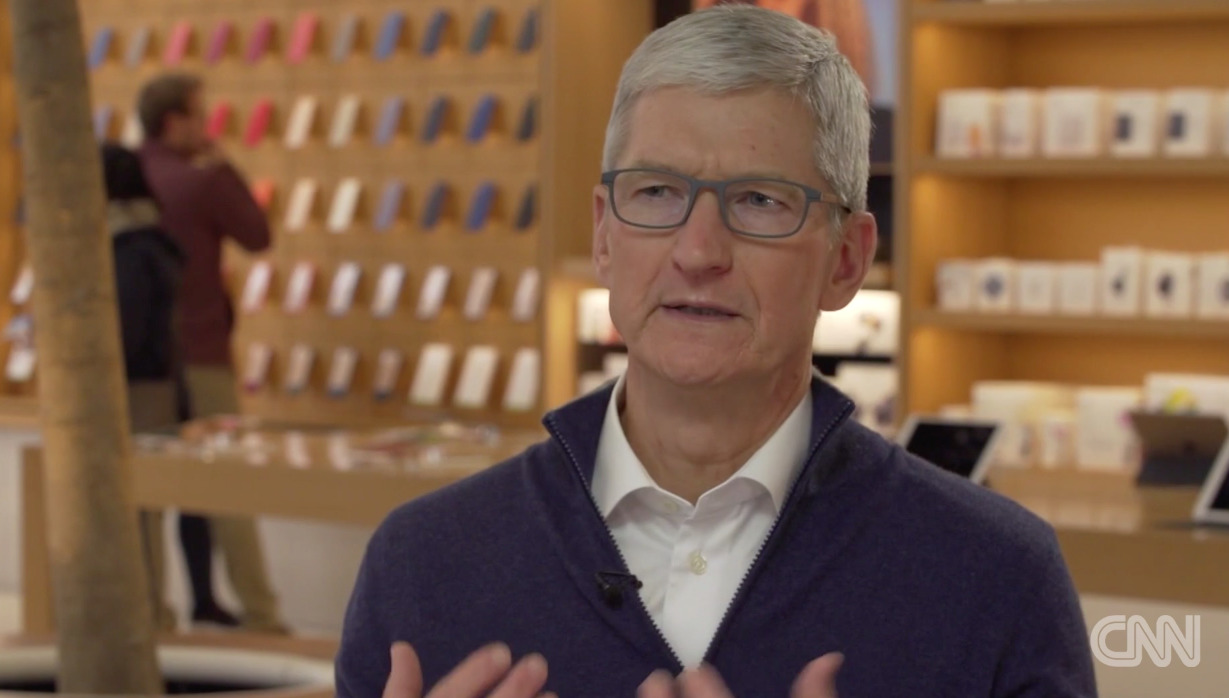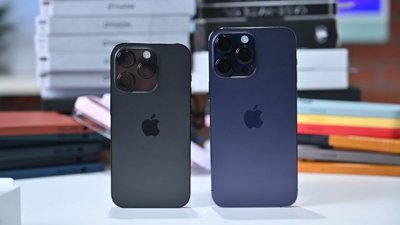Tim Cook declares iCloud spy chip account '100 percent a lie' in privacy interview
Apple CEO Tim Cook is continuing to call out Bloomberg's report about Chinese spy chips embedded into iCloud servers as false, proclaiming in an interview about the company's stance on privacy and taxation that the report "is 100 percent a lie."
Speaking from an Apple Store in Brussels, Belgium, Cook expressed concern about the possibility of government surveillance interfering with products and services used by consumers, advising he sleeps "with an eye open," but at the same time firmly denounced claims from the Bloomberg report.
"It is 100 percent a lie. There is no truth to it," Cook told CNN's Christine Amanpour. "There's no malicious chip."
Cook was referring to the spy chip story which claimed the components were secretly slipped into hardware produced in China, with the intention of spying on major western companies and government agencies via a hardware hack. Many of the companies named in the report have spoken out against it, including Apple, while experts have weighed in suggesting that the hack as-told would be impossible to perform.
Cook's outburst echoes similar comments made by the CEO on October 19, claiming "There is no truth in their (Bloomberg) story about Apple," calling for the publication to retract it. Cook also advised the company "really forensically whipped through" email, datacenter records, financial records, and other data to find evidence that suggests the report is true, but failed to find anything.
The interview coincides with a speech made by Cook at the International Conference of Data Protection and Privacy Commissioners earlier on Wednesday, where he praised the European Union's moves in data protection and called for the United States to follow its lead. Cook also raised the idea of the "data-industrial complex" as a threat, claiming "Platforms and algorithms that promise to improve our lives can actually magnify our worst human tendencies."
In the interview, Cook explained that major corporations have effectively created surveillance operations that prioritizes profit over a consumer's control of their own data. "You have more information in your devices than in your own home," he warned. "All of this information that is out there is too much. It is just too much. It should not exist."
Apple's stance that privacy is a basic human right was raised again, to illustrate the company's decision to avoid data collection-based models used by Facebook and Google to advertise to its users.
In another part of the interview concerning taxes, tariffs, and other fees, Cook advises he "disdains" politics and tries to avoid participating, but does enjoy advocating for "good policy." In the case of the ongoing trade war between the Trump Administration and China, Cook claimed that while tax cuts are good for the economy, he dislikes the use of tariffs on either side.
Cook also defended Apple's tax affairs with Ireland, one that the European Union believed was too advantageous to the company, in that Ireland made arrangements for Apple to pay extremely low amounts of tax to the country, making it a tax haven. Apple has since paid the equivalent of $15 billion in back taxes to the country, as well as interest, which is held in escrow while both Apple and Ireland appeal the ruling.
The CEO claimed Apple follows tax laws as written, in that tax revenue on intellectual property owned by entities based in the United States should be paid to the United States. "Until that law changes, we will follow the law," advised Cook.
While Cook does acknowledge "valid points of view" relating to changes in tax law, he disputes the European Union's decision on the Irish financial arrangements.
 Malcolm Owen
Malcolm Owen











 Mike Wuerthele
Mike Wuerthele
 Christine McKee
Christine McKee
 William Gallagher
William Gallagher
 Andrew Orr
Andrew Orr
 Sponsored Content
Sponsored Content










